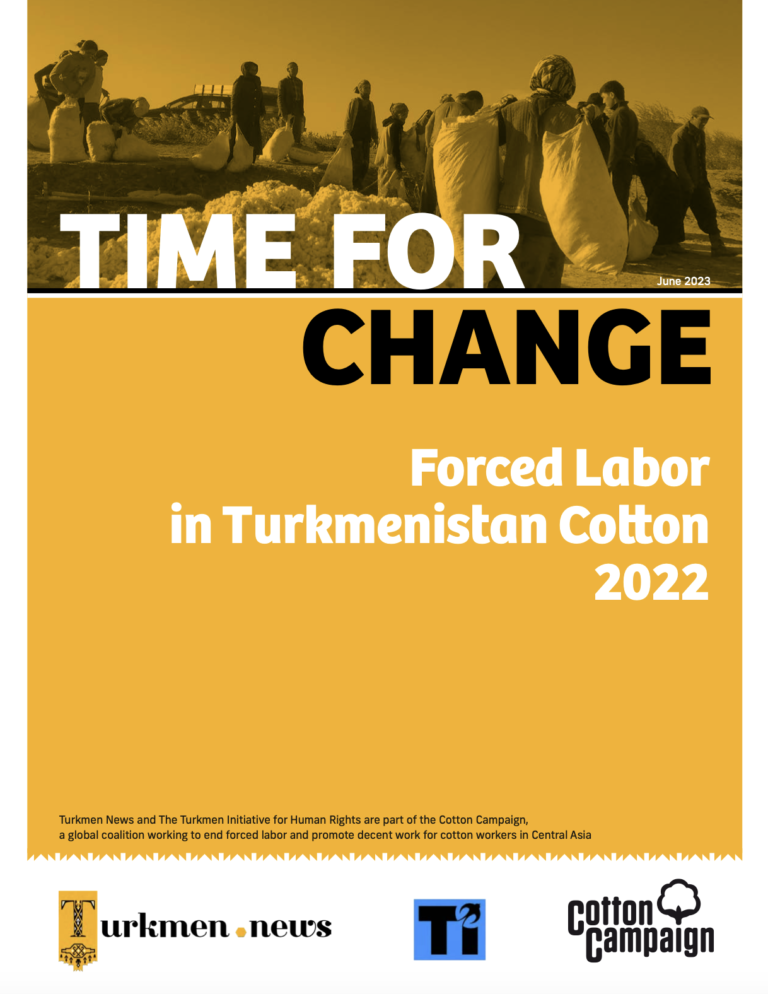Turkmenistan is one of the most closed and repressive countries in the world, with a system of arbitrary, corrupt governance that controls nearly every aspect of public life. It is the tenth- largest producer of cotton in the world and exports cotton lint, yarn, fabric, and finished goods. The government maintains complete control over the cotton production system, which is predicated on the coercion and exploitation of tens of thousands of tenant farmers, public sector employees, and others to produce and harvest cotton for the benefit of corrupt elites. Every year, the government imposes cotton production quotas on farmers and enforces them with the threat of penalty, including fines and loss of land. It controls all essential inputs for cotton production, including seeds, fertilizers, pesticides, agricultural machinery, fuel, and access to irrigation, and sets the price at which farmers must sell their crop to the state.
Every year during the harvest, which takes place between August and December, the Turkmen government forces tens of thousands of public sector workers, including employees of schools, kindergartens, hospitals and clinics, utilities, public agencies, and state-owned factories to pick cotton or pay for replacement pickers under threat of penalty, including loss of employment or reduction of work hours or pay, and extorts money from the same workers to pay expenses related to the harvest.
This government-controlled monopoly-monopsony system has contributed to the enrichment of corrupt elites while driving poverty and child labor. The system of labor exploitation has also had devastating effects on the delivery of essential public services, such as healthcare and education, by taking public employees out of their jobs and into the fields. This cotton produced and harvested with forced labor, colloquially known as “white gold,” finds several ways to enter global supply chains. Cotton lint, yarn, and fabric are exported to production countries such as Turkey, Pakistan, and Portugal, and finished goods, like towels and bed linens, are sold in the US, Canada, and Europe despite forced labor import bans, due diligence requirements, and other laws regulating or restricting the use of forced labor in supply chains.
In Turkmenistan, harvesting cotton using forced labor is not an anomaly, but an integral part of a command system of agricultural production, the exploitative practices of which extend to the harvest of wheat, silk cocoons, and other products. Public sector employees are forcibly mobilized not only to pick cotton but also to carry out thinning, weeding, and topping of cotton plants, as well as supervise the wheat harvest and cultivate silk cocoons. The system of state control and coercion is so entrenched that farmers plant according to what and when the state dictates instead of taking into account the soil, water, and climate conditions. Extreme weather and drought have impeded farmers’ ability to irrigate their fields properly, placing them at the mercy of a government that neglects to meaningfully address the country’s water shortage. The administrations of the peasant associations enforce the command production system, which, in 2022, included ordering farmers to plant crops before fields were ready, and controlling key inputs — especially water — to maintain compliance.

